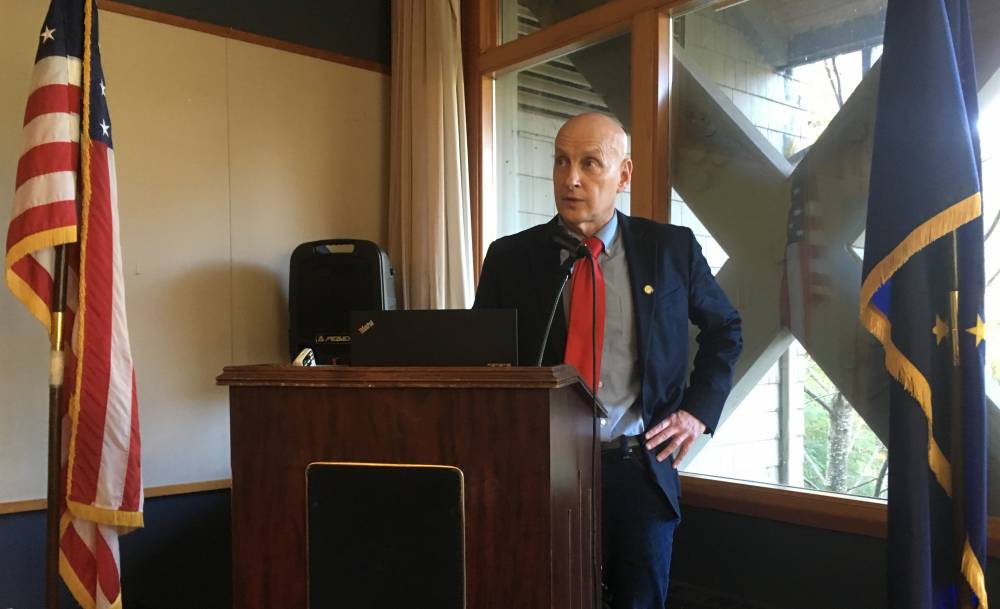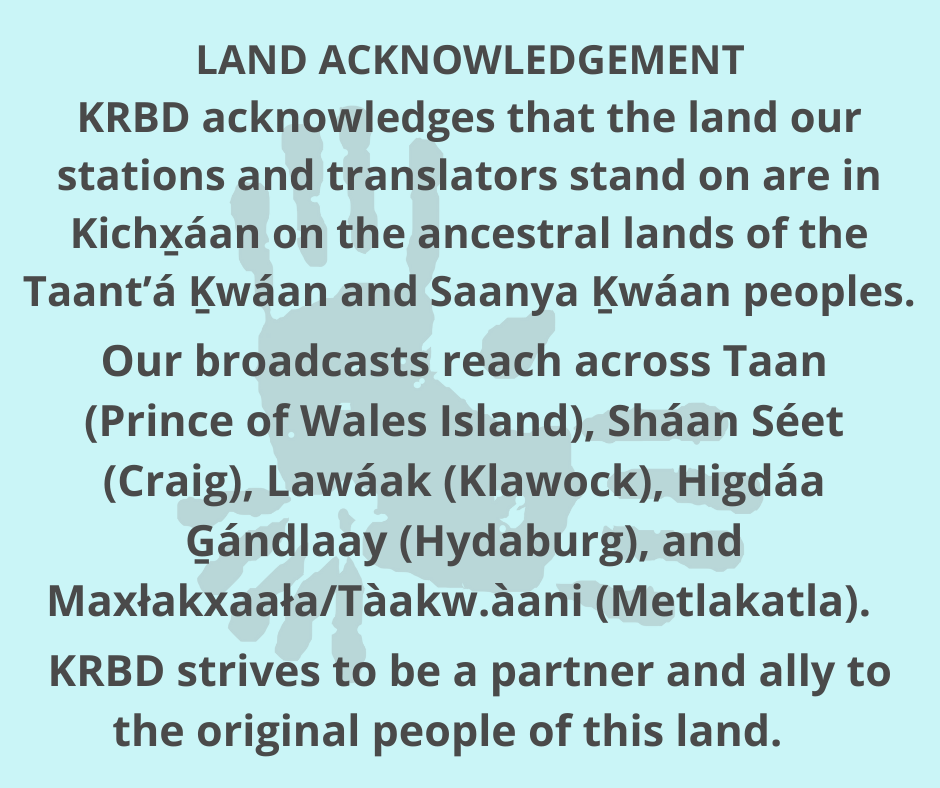
Ketchikan residents gave input on the governor’s proposed budget during a special Chamber of Commerce event Friday with House District 36 Rep. Dan Ortiz.
Most of that input, even from politically conservative residents, opposed Gov. Mike Dunleavy’s sweeping cuts to state services.
Ketchikan is a Republican town. The majority of Ketchikan voters in last fall’s election chose Dunleavy, following the statewide trend.
But, some conservatives at the Chamber of Commerce lunch say Dunleavy has gone too far. Roger Stone reminded the gathered crowd and Rep. Ortiz that the Alaska Permanent Fund was established in order to help pay for government if and when revenue from resources ran dry.
“Alaska is a resource-based state and we always knew that resource revenue was going to go up and down, and the people in the Legislature at the time back in the late ‘60s and early ‘70s had the foresight to look to the long term to establish the permanent fund, rather than just spend the money,” he said.
Stone said billions in Perm Fund earnings are available, and the Legislature can use them.
“I agree that the budget needs to be cut; I still think there are areas that can be reduced,” Stone said. “But I don’t think that Gov. Dunleavy’s budget is realistic in terms of what we can operate on as a state, especially in Southeast Alaska.”
Ortiz says the state is using some Perm Fund earnings now to pay for government services. And some went toward the 2018 partial Permanent Fund Dividend payments for Alaska residents. However, Dunleavy ran on a promise of “full” PFDs, no taxes, and cuts to make up any deficit.
Ortiz said the governor’s proposed budget cuts to public education, University of Alaska, the Alaska Marine Highway System, Pioneers Homes, public media and more is the result. If services are added back, he said, that money has to come from PFDs.
If all the cut services are added back, Ortiz said, that would mean individual PFD payments of less than $500.
Another audience member, Kim Hodne, told Ortiz that’s OK with him, because the proposed cuts would affect about 500 jobs directly in Ketchikan.
“Personally, give me a $475 PFD or give me no PFD. I don’t care,” he said. “If it means the difference between getting $400 or having a job, I’ll take the job.”
The audience responded with applause.
Hodne said a loss of 500 jobs would be as bad as when the pulp mill closed, and he’s not sure the community could handle that kind of hit again.
Ortiz said that’s the kind of input state lawmakers need to hear.
“Not just me,” he said. “You need to tell the entire Legislature, the Dunleavy administration, you just need to tell us all. And you need to speak it very clearly.”
Stephen Bradford asked whether Ortiz pays attention to input from people who live in, for example, Kenai. Ortiz said he does.
“I listen less. I’ll be honest with you, I listen less,” he said. “I take a look at the email, though.”
Bradford also asked about the Legislature’s power to override any vetoes from the governor’s office.
Ortiz said that would take a three-quarters majority. Whether than can happen depends on the message lawmakers hear from constituents and others throughout the state.
Legislators’ contact information can be found at www.akleg.gov. The governor’s office can be reached through https://gov.alaska.gov/








